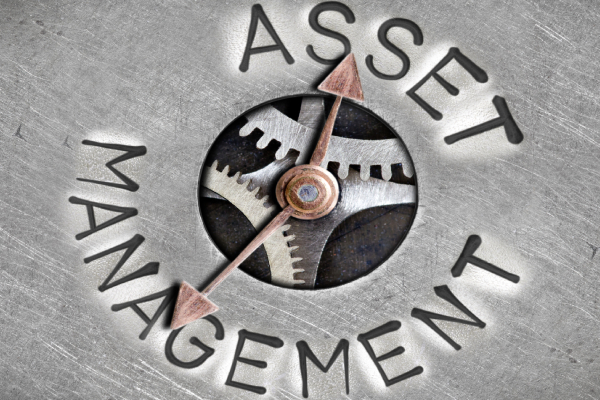A new Hotel Asset Managers Association (HAMA) survey of 90 of its 200 members this week reflected most of what the hotel community has been saying for the last six months – slightly less pessimism about ongoing performance metrics, a bit more optimism about forecasts over the next few years, ongoing concerns about labor shortages and growing interest in acquisition versus disposition.
In a Zoom media session on Tuesday led by Larry Trabulsi, executive vice president at CHMWarnick, the tone was relatively optimistic among asset managers who work on behalf of owners, with a bit of hedging.
The bigger message was that COVID has likely changed the operating model for good, at least that is the expectation, and perhaps for the better, said Sarah Gulla, senior vice president of asset management at Pebblebrook Hotel Trust. The big “if” surrounded whether the changes are sustainable. Can service levels, market share and rates be maintained with lighter teams?
Trabulsi echoed Gulla’s thoughts, saying that the trimming of management fat is among the keys to survival. He didn’t suggest that management ranks were shrunk for good, but big future increases are not expected at the corporate or property levels – if you can even source the talent.
What follows is a general roundup of the September survey results that was last fielded in April, this time reflecting, among other things, recent results that have shown better leisure than corporate demand, less asset depreciation than expected and a general sense of methodically improving performance.

Question: How many of your hotels are forecasted to exceed 2021 budgeted RevPAR?
Result: 39% of respondents anticipate 76% to 100% of their hotels to exceed 2021 budgeted RevPAR
Q: What is your 2021 full year forecast for REVPAR versus 2019 for your entire portfolio?
A: Approximately half of the respondent’s in both the earlier spring and now fall survey forecasted a 25% to 50% decline in RevPAR compared to 2019. However, there was a noticeable increase in the number of hotels forecasted to only see a 0% to 25% decline.
Q: How many of your hotels are forecasted to exceed 2021 budgeted GOP?
A: 38% of respondents anticipate 76% to 100% of their hotels to exceed 2021 budgeted GOP
Q: How many of your full-service and above hotels are forecasted to exceed 2021 budgeted GOP?
A: 31.5% of respondents anticipate 75% to 100% of their full-service hotels to exceed 2021 budgeted GOP
Q: For full-service hotels, what budgeting direction are you providing for 2022 in terms of RevPAR versus 2019?
A: 70% of respondents anticipate less than a 30% decrease in RevPAR compared to 2019 for their full-service Hotels
Q: For select- and limited-service hotels what budgeting direction are you providing for 2022 in terms of RevPAR versus 2019? (on average)
A: No respondents anticipate a RevPAR decline of more than 30% when compared to 2019
Q: What general factors are you most concerned about right now?
A: When comparing fall survey results to spring, labor challenges increased, while capital stack and management company concerns subsided. Demand remains an issue for nearly 70% of respondents.
Q: Are you contemplating a brand or management change as part of your recovery strategy?
A: Brand and management changes are cooling, but 15% of respondents are still contemplating a change
Q: Do you have any hotels that you expect to hand the keys back to the lender or enter into a forced sale situation?
A: 10% of respondents still expect to hand the keys back to the lender, down slightly from the spring survey
Q: Since the spring HAMA survey, have you handed back the keys to the lender or entered into a forced sale situation?
A: Since spring, 11% of respondents handed keys back to the lender
Q: When do you think RevPAR will return to 2019 levels for the U.S. as a whole?
A: RevPAR recovery sentiment remained relatively consistent with 50% of respondents anticipating a 2023 Recovery. There is a bit more optimism for 2024 and 2025.
Q: When do you think RevPAR will return to 2019 levels in the top 25 markets?
A: RevPAR recovery predictions here remained relatively consistent with about 35% suggesting 2023 and 45% expecting it to return in 2024. Fully, 20% see it coming back in 2025.
Q: When do you think RevPAR will return to 2019 levels outside of the top 25 markets?
A: The recovery sentiment weakened for 2023 from almost 60% in the spring survey to about 45% this fall. There is growing sentiment (38%) for 2024.
Q: Are you actively pursuing acquisitions?
A: There is a slight uptick with over 80% looking for opportunities
Q: On average, in urban markets, for full-service and luxury properties, what acquisition price discount do you anticipate compared to 2019 value?
A: Pricing pressure is evident with less than 10% anticipating a discount to 2019 greater than 20%
Q: On average, in resort locations, for full-service and luxury properties, what acquisition price discount do you anticipate compared to 2019 value?
A: Pricing expectations have increased significantly with almost 50% of respondents believing that pricing is above 2019
Q: On average, for select-service and below properties, what acquisition price discount do you anticipate compared to 2019 value?
A: When comparing to the spring survey, pricing pressure is also evident with over 50% believing that discounts to 2019 will be less than 10%

